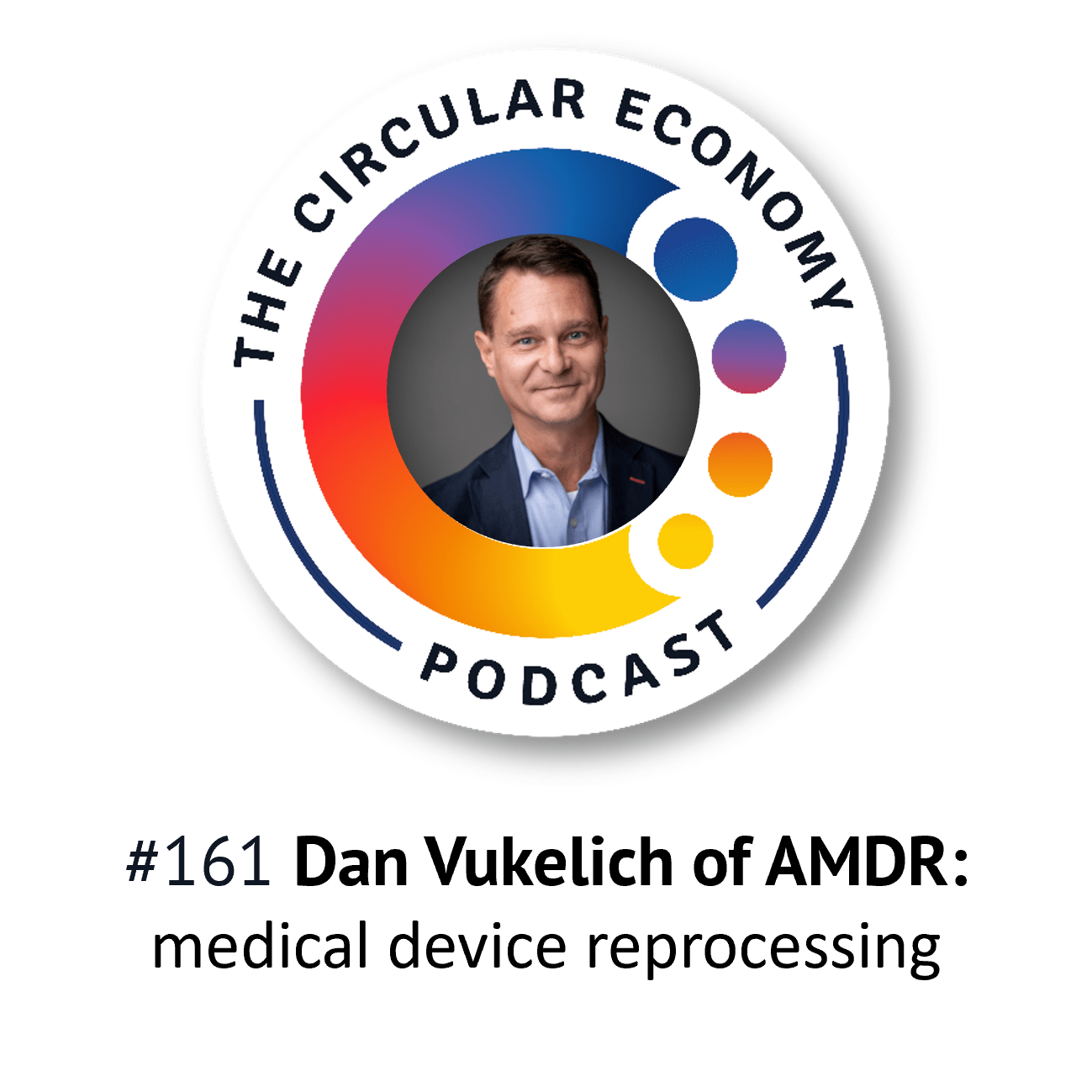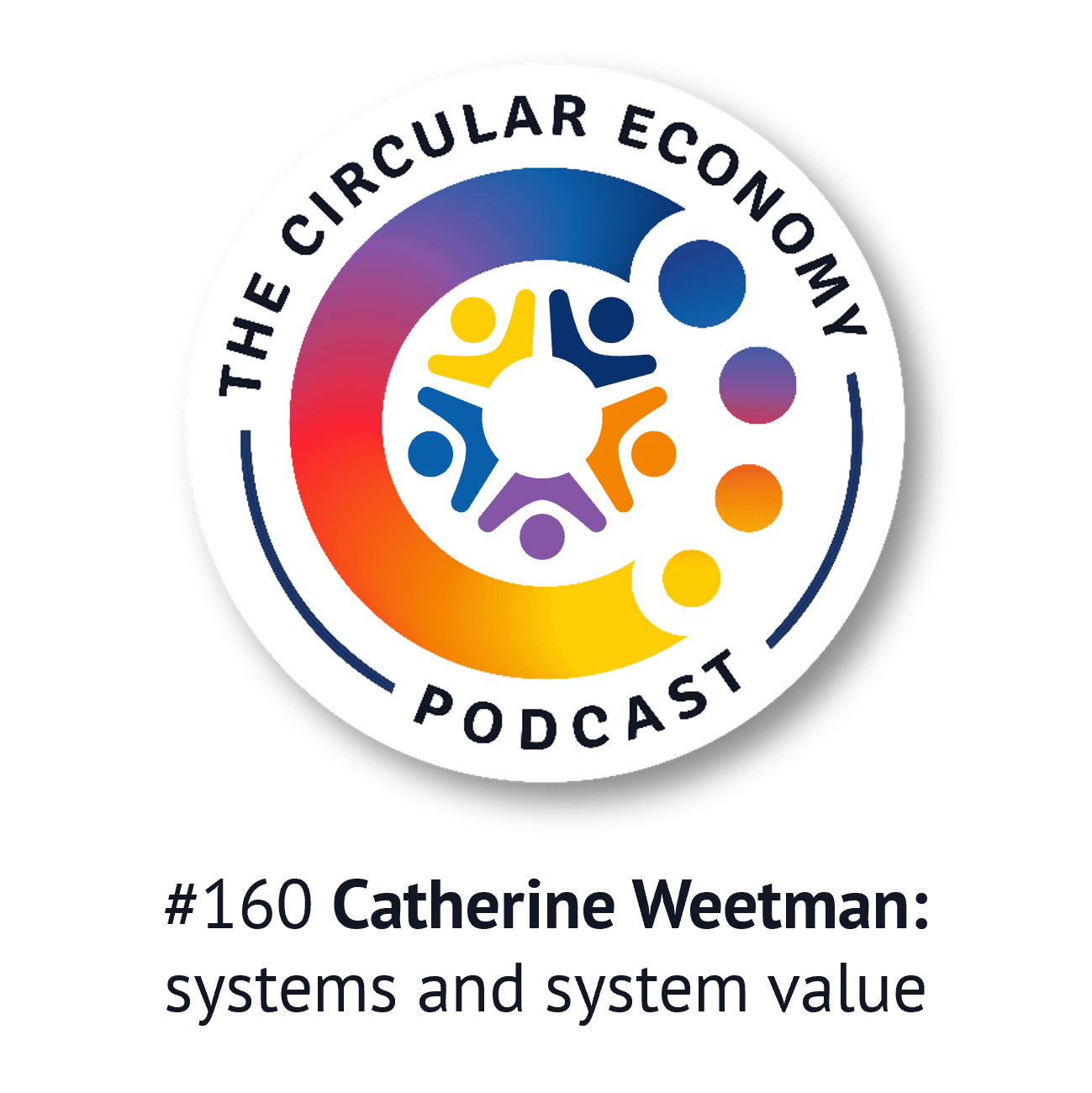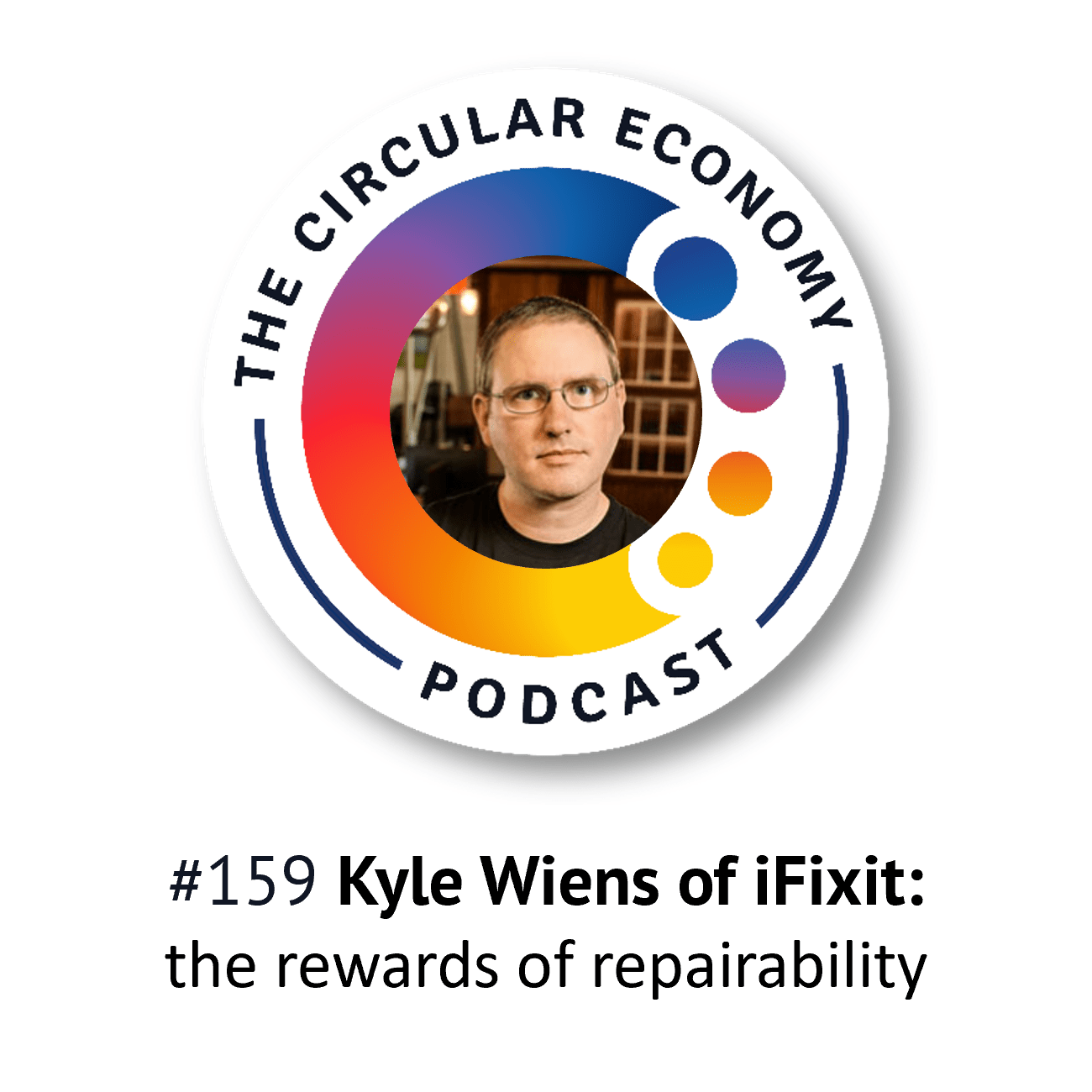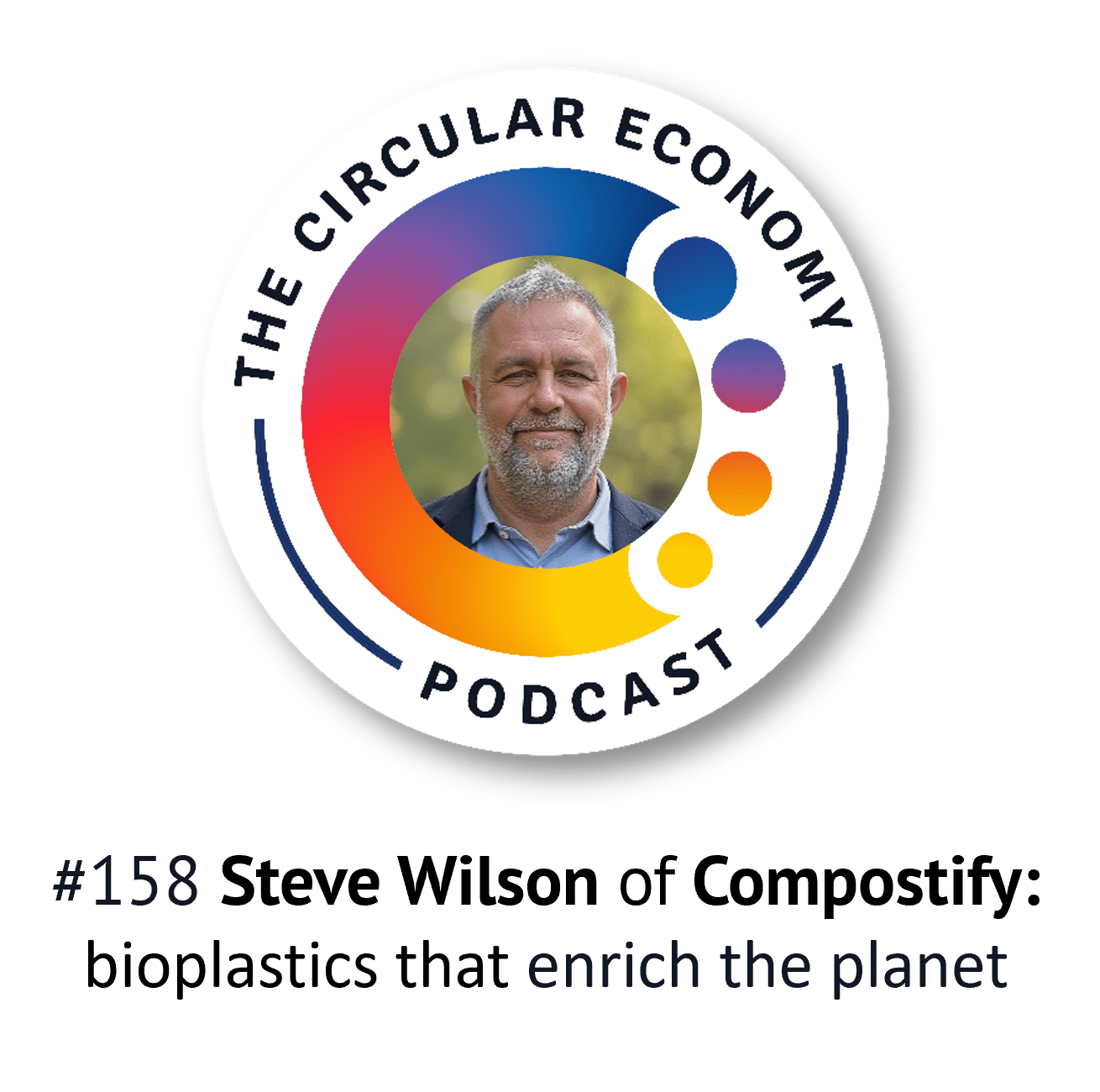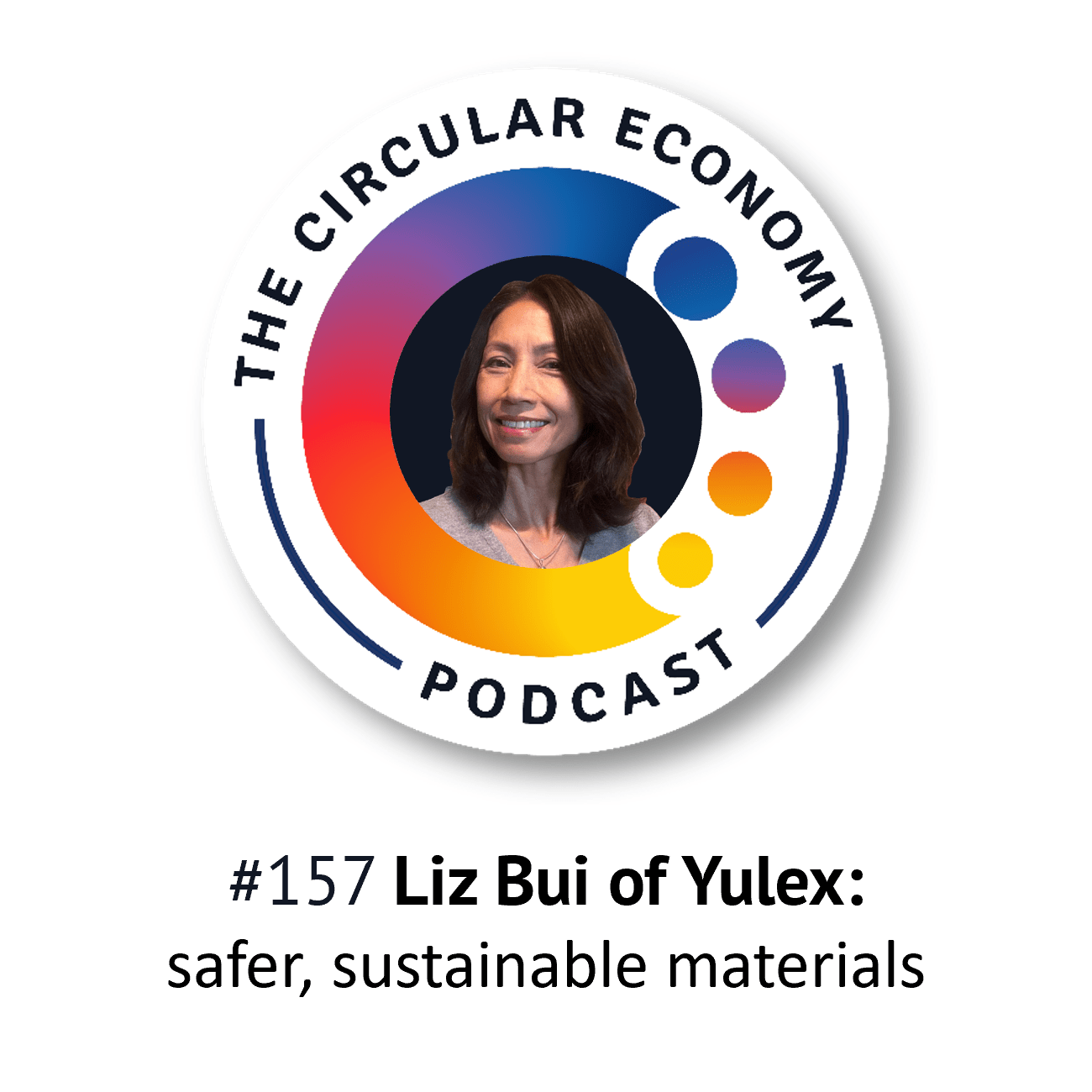Podcast: Play in new window | Download
David Bassetti of 3D Seed
From consumers to prosumers – how 3D Seed helps schools, communities and businesses to be recyclers and creators…
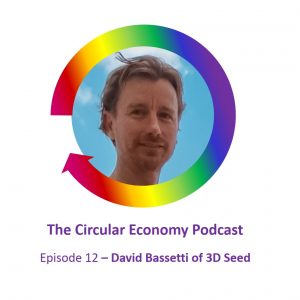 In this episode, we’re talking to David Bassetti, co-founder of 3D Seed. When David moved to Spain around 10 years ago, he noticed how much plastic was being wasted, and was frustrated that it became litter, instead of being recycled into new materials.
In this episode, we’re talking to David Bassetti, co-founder of 3D Seed. When David moved to Spain around 10 years ago, he noticed how much plastic was being wasted, and was frustrated that it became litter, instead of being recycled into new materials.
David developed a simple way of grinding up plastic to #recycle it into a feedstock for 3D Printing. 3D Seeds sets up small-scale projects to grind up every-day plastic waste, such as PET soft-drinks and water bottles, and then to 3D Print it into small objects, as a way to engage people in seeing waste plastic as a valuable resource. The kit uses very little energy and can run on solar power.
David was talking to us from an echoey room, and using his laptop mic – so I’m sorry that the sound quality isn’t great. I’ve learnt a lesson about the limits of post-production editing, and apologise to David as I should have suggested that we re-schedule the interview.
Podcast host Catherine Weetman advises businesses, gives workshops & talks, and writes about the circular economy. Her award-winning book, includes lots of practical examples and tips on getting started. Catherine founded Rethink Global in 2013, to help businesses use circular, sustainable approaches to build a better business (and a better world).
Stay in touch for free insights and updates…
Read on for a summary of the podcast and links to the people, organisations and other resources we mention.
You can subscribe to the podcast series on iTunes, Google Podcasts, Spotify, TuneIn, or search for “circular economy” in your favourite podcast app. Stay in touch to get free insights and updates, direct to your inbox…
Links
- Catherine’s blogs: Six ways to create a plastics circular economy also 3 ways to rethink packaging with the circular economy and 5 steps to circular, sustainable packaging
- Email David Bassetti david@3d-seed.com https://www.linkedin.com/in/david-bassetti-92728014/
- David on Linked In https://www.linkedin.com/in/david-bassetti-92728014/
- 3D Seed 3D-Seed.com and Recycling 3d printer videos here
- Follow 3D Seed on Twitter https://twitter.com/3d_seed_bcn
- You can download open-source 3DP designs from Thingiverse https://www.thingiverse.com
David Bassetti
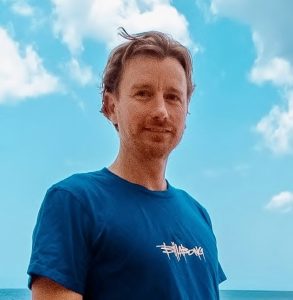 David is the co-founder of 3D Seed. After graduating as an Industrial Designer at Newcastle University, Australia, he worked as a designer for several different companies, designing a range of products including medical equipment and consumer technology. Moving to Spain around 10 years ago, he noticed how much plastic was being wasted, becoming litter instead of being recycled into new materials
David is the co-founder of 3D Seed. After graduating as an Industrial Designer at Newcastle University, Australia, he worked as a designer for several different companies, designing a range of products including medical equipment and consumer technology. Moving to Spain around 10 years ago, he noticed how much plastic was being wasted, becoming litter instead of being recycled into new materials
He decided to design machines to grind plastic and then 3D Print it directly as a way to engage people in seeing waste plastic as a valuable resource.
3D Seed
We use your waste plastic in our Recycling 3D printer modules for the real Circular Economy and Smart Cities. Showing that plastic IS a resource to be reused again and again without it being sent to landfill or incinerated.
We show people that they are an integral part of the Circular Economy and we provide the incentive and equipment for communities to recycle and benefit by making something they need.. again and again… Scaleable solutions for the future.. available today. We believe that people have the only need and resources to change now..for a better future.. so giving plastic a ¨worth¨and showing it´s easy to reform it with 3d printing.. is a first step in stopping plastic going into the environment.
What we talk about
We talk about the evolution of 3D Printing, and David tells us how he was inspired by the RepRap movement, – humanity’s first general-purpose self-replicating manufacturing machine.
We find out how David came up with the idea for creating the plastic feedstock for the printers, using waste PET. David tells us about some of the issues in areas of the world that have no clean drinking water. PET plastic, commonly used in soft drinks and water bottles, has lots of excellent features for 3D printing.
From consumers to prosumers
How does 3D Seed help people become prosumers, instead of consumers? [Prosumer: A person in postindustrial society who combines the economic roles of producer and consumer.]
David tells us about some of the objects people make, and how a homeless person came along and managed to sell a 3D Printed bracelet for one Euro – highlighting the potential to link up social and environmental benefits. We find out about 3D Seed’s project in a large school in Barcelona, where 600 water bottles are ‘consumed’ every day. Now the school is recycling these and learning to design in 3D, then make prototypes that can be recycled into new prototypes. A good example of a local loop, and keeping materials flowing in the system.
3D Seed is also working with Green Phoenix in Curacao, helping them deal with issues caused by plastic washing up their beaches. As a small island, it has very limited recycling facilities and wants to look at ways to create value instead of paying expensive shipping costs to send the plastic waste away for recycling.
Future plans
David tells us about how he kit can be set up in schools, community projects and businesses, and fits well with the #smartcities movement. People can download designs from open-source sites like Thingiverse or they can create their own 3D designs. People are printing everything from models and jewellery, to spare parts and toys.
And though we know recycling into toys and gifts is not the answer to our problems with waste plastic, this is a great way to help people understand how waste can become a valuable resource, and to help people develop the skills to make their own designs.
3D Seed is trying to expand into more countries and wants to link up with people who could demonstrate the technology in their local area, and then help schools/communities/businesses to set up their own projects.
They are a small, four-person team, and are on the lookout for investors and business support to help them go forward.
To find out more about the circular economy, listen to Episode 1, read our guide: What is the Circular Economy or buy the book: A Circular Economy Handbook for Business and Supply Chains
Why not sign up for the latest episode and insights, straight to your inbox?
David would like to mention these people:
- Adrian Bowyer and Vik Oliver for their fabulous work starting the RepRap Revolution reprap.org
- Mahor and Diana from mahor.xyz and www.iamtech.es
- Katrina and Juan at CreaIdeaLab http://www.creaidealab.com/circular-economy
- Panos Sakkas at The New Raw https://thenewraw.org/
- Jan Japp at UpCycle https://www.upcyclingplastic.com/
- Nout and Sam at Van Plestik https://vanplestik.nl/en/about-vanplestik/
- Ignasi from http://ecointelligentgrowth.net/
- Lluis from Ecolutions https://ecoluciones.com/
- Mark at Plastic Oceans plasticoceans.org
- Sabine and Giacomo at Green Phenix ( Curacao ) https://greenphenix.com/
- Micheal and Deborah at Limpi ( Curacao) https://www.limpirecycling.com
- Dave Hakkens with Precious Plastic https://preciousplastic.com/
- Gunter and Anne from Plastic Hub, Catalunya https://bazar.preciousplastic.com/
- Boyan Slatt with The Ocean Cleanup.. ( just cause he´s collecting more waste than any one person ) https://theoceancleanup.com/
Want to find out more about the circular economy?
If you’d like to learn more about the circular economy and how it could help your business, why not listen to Episode 1, or read our guide: What is the Circular Economy?
To go deeper, you could buy Catherine’s book, A Circular Economy Handbook for Business and Supply Chains This comprehensive guide uses a bottom-up, practical approach. It includes lots of real examples from around the world, to help you really ‘get’ the circular economy. Even better, you’ll be inspired with ideas to make your own business more competitive, resilient and sustainable.
Please let us know what you think of the podcast – and we’d love it if you could leave us a review on iTunes, or wherever you find your podcasts. Or send us a Tweet: @Rethink _Global.
Podcast music
Thanks to Belinda O’Hooley and Heidi Tidow, otherwise known as the brilliant, inventive and generous folk duo, O’Hooley & Tidow for allowing me to use the instrumentals from the live version of Summat’s Brewin’ as music for the podcast. You can find the whole track (inspired by the Copper Family song “Oh Good Ale”) on their album, also called Summat’s Brewin’. Or, follow them on Twitter.
